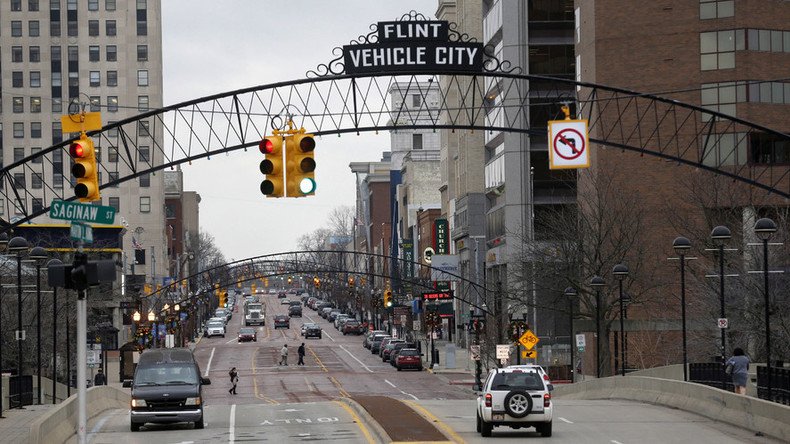The controversy over Flint’s water contamination took another turn on Thursday, as a newly revealed document shows state workers were trucking in their own water supply in January of 2015, almost a year before the governor acknowledged the lead problem.
The document, a facility notification sent by the Department of Technology, Management and Budget (DTMB), refers to a notice about a violation of drinking water standards that had recently been sent out by the City of Flint.
“While the City of Flint states that corrective actions are not necessary, DTMB is in the process of providing a water cooler on each occupied floor,” said the notice, which was obtained by the liberal advocacy group, Progress Michigan.
The water coolers were to be installed next to the drinking fountains so that state workers could “chose which water to drink.”
The document was obtained by Progress Michigan, a liberal group that demands accountability from state and city officials. It is dated January 7, 2015.
However, state officials repeatedly insisted Flint tap water was safe to drink for nearly all of 2015, with Governor Rick Snyder only acknowledging the problem in October of 2015. He declared a state of emergency on January 5, 2016 – about a year after the notice was sent out.
“It appears the state wasn’t as slow as we first thought in responding the Flint Water Crisis. Sadly, the only response was to protect the Snyder administration from future liability and not to protect the children of Flint from lead poisoning,” said Lonnie Scott, executive director of Progress Michigan, in a statement. “While residents were being told to relax and not worry about the water, the Snyder administration was taking steps to limit exposure in its own building.”
Drinking water in Flint was contaminated after the city moved away from the Detroit water system in 2014 and began pulling water from the polluted Flint River. Officials failed to properly treat the water, which leached lead from pipes and became contaminated as it traveled to homes and other buildings.
An email chain connected to the document showed that the Department of Environmental Quality was aware of the notification and action taken to limit the exposure of state workers to Flint’s water.
“Another day and another example of the Snyder administration’s lackluster response to this crisis. Worse yet, this shows that the response was not only late and so far ineffective, but it was also unequal,” Scott said. “Governor Snyder needs to explain to the people of Flint why his administration trucked water into a state building while allowing residents to drink unsafe water.”
Caleb Buhs, a spokesman for DTMB, told the Detroit Free Press that the water coolers were still being provided because “there were more findings [of contamination] as we went along.”
In a related story, just a day after a coalition of environmental and civil rights group filed a federal lawsuit against the state demanding it replace all of the lead pipes in Flint’s water system, Michigan Senate Democrats are seeking to do the same.
The Hill reported that a group led by Michigan Senators Gary Peters (D) and Debbie Stabenow (D) is sponsoring an amendment, to be included in the Senate’s wide-ranging energy bill, which would release $600 million in funds. Up to $400 million would go “to replacing and repairing water pipes in Flint, matching state funds, while $200 million would go to establish a ‘center of excellence’ on lead exposure from drinking water.”
“Ultimately, the approach is multi-faceted. You’ve got to look at the health of the people of Flint, you’ve got to look at education for the children that have been impacted, you’ve also got to look at the infrastructure,” Peters told reporters Thursday.
“The bottom line is that these pipes need to be fixed or replaced,” said Stabenow, calling the proposal “an appropriate response from the federal government” to the crisis.

